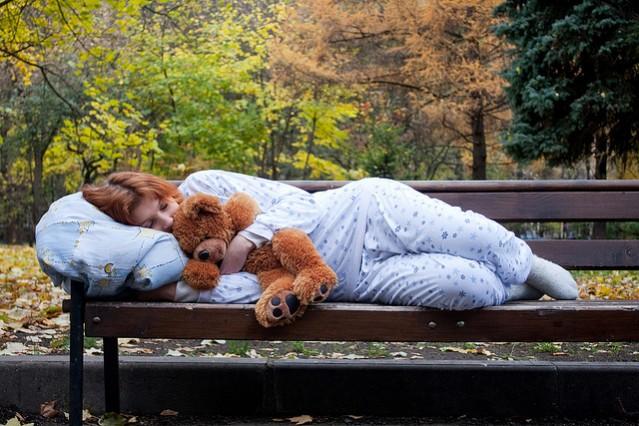
Even though health experts and dieticians often warn people of the side-effects of crash diets, many people are known to religiously follow these diets to lose weight in a short period of time. While we have all heard about the crash diet fads such as grapefruit diet, Hollywood diet and the likes, the newest entrant is the Sleeping Beauty Diet.
So how far would you go to lose weight? Would you sleep through mealtimes just so that you don't end up eating? Well, that is pretty much the idea behind this diet – if you are sleeping more, you will eat less. And some people are taking the diet so seriously that they are even relying on sedatives and strong painkillers that aid sleep, reported Independent. In turn, they end up eating less.
People on the Sleeping Beauty Diet are known to have a low-calorie intake and are even encouraged to sleep for about 20 hours in a day. Also, many of them burn more calories than required through exercise.
And while the idea might raise quite a few red flags among a lot of us, some people have been more than willingly jumping on the bandwagon and speaking about it on various pro-anorexia forums.
"I just take some really strong pain killers they usually dope me out and I'll nap for hours. They kind [of] mess with your stomach and curb your hunger a bit so I do it all the time," one of the followers of the diet said, according to the website. "I love sleeping to avoid food. It's pretty easy for me because I'm tired ninety-nine percent of the time," wrote another user. Another follower of the diet explained that she just sleeps so that she doesn't end up binge eating.
However, several experts and dieticians have warned against the Sleeping Beauty Diet and said that it is extremely dangerous and may even lead to death. "The sad reality is that sleeping for several days straight won't make thinner," Linia Patel, a dietician and spokesperson for the British Dietician Association, told Cosmopolitan.
"If you do manage to wake up two pounds lighter you will wake up being potentially addicted to sedative pills which is not good news. Being addicted to sedative pills means one day you might not wake up at all. This diet has not been proven to be a safe and effective way to help weight loss by any means. If abused it would lead to death."

She also explained that there is no concrete proof which says that sleeping leads to weight loss. Instead, she spoke about how oversleeping has ill-effects on health.
"One study showed that people who slept for 9 – 10 hours a night were 21% more likely to become obese," she noted. "Oversleeping has been linked to a number of medical problems such as heart disease and diabetes as well as an increased risk of death."
The idea of a link between sleep and weight loss was first brought up by Dr Michael Breus in 2012 through his book "The Sleep Doctor's Diet Plan: Lose Weight Through Better Sleep" but now he too believes that people are overdoing it and the idea has been taken to the "extreme."

















